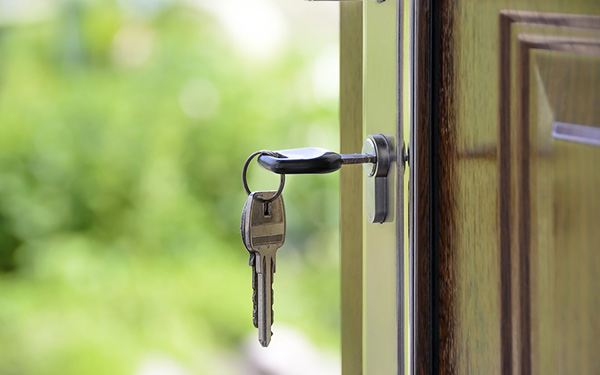One question we hear time and again from would-be UK expats is, ‘what happens to my mortgage if I move abroad?’
It’s a good question.
While moving abroad is undoubtedly an exciting prospect and opportunity, it can leave you with a lot of loose ends to tie up before you jet off to sunnier climes.
Sure, these loose ends can be a bit of a headache, but this article will offer you the knowledge and guidance you need when considering your options when it comes to your mortgage.
What Happens To My Mortgage When I Move Abroad?
It is a good idea to pay off any debts before you move abroad as this makes managing your finances less complicated. While this is the ideal, it is unlikely in the case of your mortgage.
That’s a lot of money.
Assuming you won’t have paid off your mortgage by the time you leave the UK, you must make sure that you keep up your repayments on it even though you’re moving abroad.
Failure to do so can result in repossession of the property by the bank or lender — just as if you were in the UK.
How To Pay Your Mortgage When You Live Abroad
It is a good idea to keep your UK current account open and operational when you move abroad.
This will ensure that keeping up with your repayments is an easy and smooth transaction.
An added bonus of this is that you will be able to curate and improve your UK credit rating, which upon your return to the UK will hold your financial future in good stead.
Can I Rent Out My Home When I Move Abroad?
Another option available to you is to let out your home for the period that you are living overseas.
As the property is in the UK though, remember that you have to declare any income on your tax forms and register with the Non-resident Landlord Scheme to receive the gross rent.
Nonetheless, this should offer you a good second income stream with little active input depending on how you opt to manage the property.
While you could manage the property yourself and save some considerable costs, the stress of dealing with repairs and replacing tenants from abroad means that paying someone to manage it for you is a wise move.
You could enlist the help of family or friends with this, however if you want to ensure skill and professionalism, finding a letting agent is a good option. Typically, these companies will charge 10-15% of the annual rental income, raising the cost of letting your property — but also lowering the stress.
If this still sounds like an attractive prospect to you then you should alert your mortgage lender to your intention. Your lender will likely want you to convert your ordinary mortgage into a buy-to-let (BTL) mortgage.

Anyone who wants to invest in houses or flats can consider a BTL mortgage, however it is likely that your lender will require you to meet some kind of criteria. Here are a few questions you should ask yourself before the lender does:
- Can you afford to take a risk? It’s no secret that investing in property can be risky, so you should make sure that you have a security blanket to fall back on.
- Do you have a good credit record? A bad credit record could affect your ability to get a BTL mortgage, not to mention you don’t want to be stretched too thin on your other borrowings.
- How much do you earn annually? The Money Advice Service says that someone considering a BTL mortgage should be earning upwards of £25,000 a year. Anything less can make it very difficult for you to get a lender to approve of your BTL mortgage.
- Is this the first property you’re buying? If you already own a house, either in its entirety or with an outstanding property you should find it relatively easy to find a mortgage. However, whilst its possible for a BTL property to be your first bought property, you will find it much more difficult to find a mortgage as the vast majority of lenders will require you to have already owned a residential property.
If you have considered these questions carefully and are still on board with a BTL mortgage, then you should be aware that there are some very important key differences to an ordinary mortgage:
- The fees are often much higher than a standard mortgage and usually levy higher interest rates.
- Most BTL mortgages work on an interest only basis. This means that you whilst you don’t have to see a deduction from your bank each month, you will have to repay the capital in its entirety at the end of the mortgage’s term.
- On average the deposit for a BTL mortgage sits at 25% of the property’s value, and whilst it can be as low at 20% it could also rise to 40% for some properties.
- It is unusual for BTL Mortgages to be regulated by the Financial Conduct Authority. There are exceptions to this, for example if you wanted to let the property to a family member.
You should bear all of this in mind when considering BTL mortgage, but if you have the means, and the willingness to do it, then you should be able to curate a steady stream of money whilst you’re overseas.
Are you wondering what happens to your mortgage if you move abroad? Hopefully we’ve answered your questions, but please ask in the comments if not!






